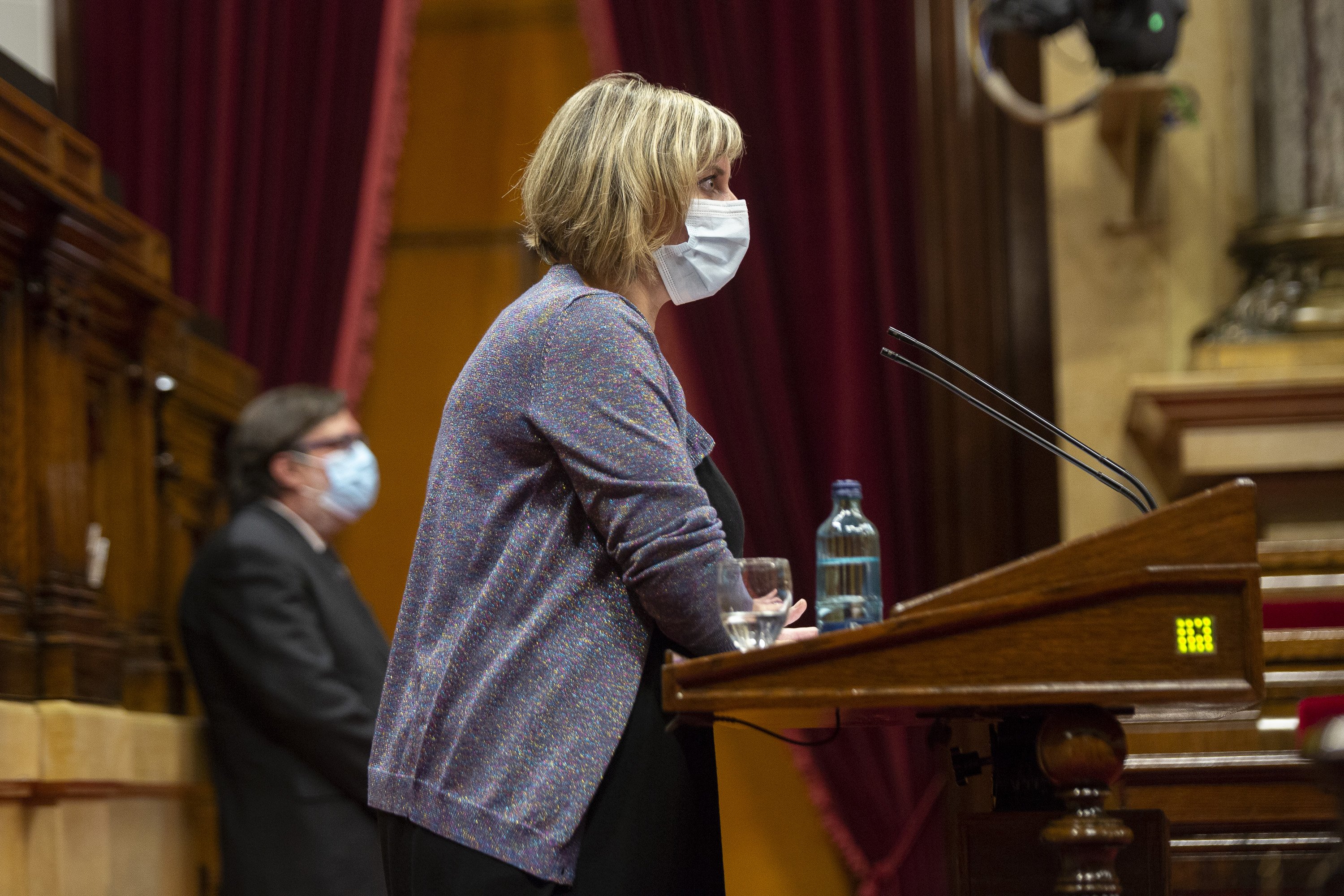Catalan interior minister Miquel Sàmper and health minister Alba Vergés have admitted that, based on the current coronavirus data for Catalonia, certain sectors such as restaurants and bars should not be reopened, but they argue that the decision to put up the roller doors again was made in order to balance the health and financial crises given the lack of aid arriving from the Spanish state. As they explained, if the Catalan authorities had had the "necessary resources" that the Spanish executive should have provided to Catalonia, the Generalitat government "would have taken much more restrictive measures" at the moment.
"If we had money, we wouldn't have reopened. Germany has paid part of the bill for its restaurants and France has done exactly the same thing. We can't do it because the state doesn't send us the resources. If we had that assistance, we would follow the line stipulated by the WHO and would be more restrictive, but as we don't, we have created the reopening plan," Samper told a news conference on Thursday.
In the same vein, Vergés called for "commitment, co-responsibility and involvement" from the Pedro Sánchez government in Madrid and warned that the health system remains at a "very complex" juncture. She explained that the government is doing "everything necessary that is in its power", such as increasing track and trace measures, but regretted that the effort would have been easier if this had also been done by the central Spanish government. “It is up to them and they should do it, like other governments in neighbouring countries,” she affirmed.
Intensive care bed occupancy in Catalonia by coronavirus patients
The data
Regarding the evolution of the pandemic in Catalonia, the director of the Catalan Health Service, Adrià Comella, explained that indicators in Catalonia "are falling and are on the right track", but asked people to be aware of the gravity of the current situation. He said that this second wave has very different characteristics due to "misunderstanding and exhaustion" among the public and the health personnel, and he predicted that the coming months will be hard.
"This holiday season there will be transmission and some people will end up in intensive care and even lose their lives just for spending time together"
"Winter will complicate the process and in addition, Christmas will increase interactions. This is ideal terrain for the virus. We are entering a very risky phase, because people are exhausted and will lower their guard. This holiday season there will be transmission and some people will end up in intensive care and even lose their lives just for spending time together,” he warned. In addition, Comella warned that a third wave could have a much greater impact on hospitals than the first or second, and even considered a "system collapse" as a possible scenario.
That is why both he and the health minister insisted on the need for public responsibility over the days ahead: "If we try to go faster than we should, we may end up not having a holiday season, and we will have the third wave."
Coronavirus deaths in Catalonia
Looking towards December
On the other hand, the ministers avoided commenting on the next step in the de-escalation phase, as they have reiterated that everything depends on the pandemic indicators. Regarding the Puríssima holiday weekend of December 6th and 8th, Samper explained that no restrictions are expected to be eased and that the government will respect the measures anticipated "whatever happens." Thus, that weekend - December 5th and 6th - the ban on crossing county (comarca) lines will definitely still be in force; if a change of phase is agreed to on the 7th, traffic will be free to travel throughout Catalonia on the Monday and Tuesday.
"It is very important not to get ahead of ourselves. In these next weeks we have to be very strict in order to protect our ability to have a Christmas. Whether or not people have a holiday weekend, the restrictions will be in force as scheduled and the change of phase crossing will take place based on the data", added Vergés.

